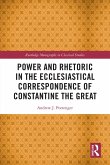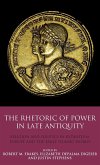
eBook, ePUB
18. Oktober 2018
Bloomsbury UK eBooks
Ähnliche Artikel

19,95 €
Sofort per Download lieferbar
eBook, ePUB
26. April 2021
Taylor & Francis eBooks

eBook, ePUB
17. September 2016
Taylor & Francis eBooks

eBook, ePUB
30. November 2022
Taylor & Francis eBooks


22,95 €
Sofort per Download lieferbar

23,95 €
Sofort per Download lieferbar

eBook, ePUB
18. Juni 2015
Bloomsbury UK eBooks

eBook, ePUB
20. September 2017
Oxford University Press

eBook, ePUB
4. Juni 2019
Taylor & Francis eBooks

eBook, ePUB
1. November 2002
Taylor & Francis eBooks
Ähnlichkeitssuche: Fact®Finder von OMIKRON

